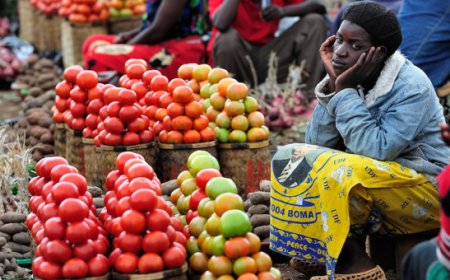Nurturing Resilience: Strategies for Sustainable Business in Ghana
Explore tailored strategies for fostering resilience in Ghanaian businesses amidst external challenges. Learn how to navigate turbulent environments and thrive in dynamic industries like agriculture and manufacturing.

In Ghana, the business landscape is often subject to external forces like currency fluctuations and global market shifts. Navigating these challenges requires resilience—a quality that allows businesses not just to survive but to thrive in the face of adversity. This article explores the importance of resilience and offers strategies tailored to two key industries in Ghana: agriculture and manufacturing.
Resilience, in essence, is the capacity to adapt, recover, and emerge stronger from setbacks. In a dynamic environment like Ghana's, characterized by turbulence, fostering resilience becomes paramount for sustainable success. A robust financial foundation serves as the cornerstone of resilience. This entails maintaining healthy cash flows, diversifying revenue streams, and ensuring a solid balance sheet.
Strategies for Agricultural Resilience
In Ghana's agriculture sector, where livelihoods depend heavily on weather conditions and market demand, resilience is essential. Farmers can bolster resilience by diversifying crops, embracing climate-smart agriculture, and leveraging technology.
Crop Diversification: Cultivating a variety of crops mitigates risks associated with crop failures due to pests, diseases, or adverse weather. By spreading their investments across different crops, farmers can hedge against potential losses.
Technology Adoption: Embracing precision agriculture tools like soil mapping, GPS-guided tractors, and drones enables farmers to make data-driven decisions. These technologies enhance efficiency, optimize resource use, and ultimately lead to improved yields.
Strategies for Manufacturing Resilience
The manufacturing industry in Ghana faces its own set of challenges, particularly in supply chain management and market dynamics. To build resilience, manufacturers should focus on diversifying supply chains, implementing robust risk management strategies, and fostering a culture of innovation.
Diversified Supply Chains: Collaborating with multiple suppliers for critical components mitigates the risks of supply chain disruptions. By diversifying their supplier base, manufacturers can buffer against disruptions caused by natural disasters or geopolitical tensions.
Risk Management: Manufacturers should develop comprehensive risk management strategies encompassing frequent risk assessments, contingency planning, and insurance coverage. This proactive approach helps mitigate potential threats such as equipment failure or cyber-attacks.
Innovation Culture: Encouraging innovation and continuous improvement fosters agility and adaptability within manufacturing firms. By staying ahead of competitors and responding swiftly to market changes, companies can enhance their resilience and sustain long-term growth.
In conclusion, building resilience is imperative for businesses in Ghana to thrive amidst uncertainty. Whether in agriculture or manufacturing, proactive strategies tailored to the unique challenges of each industry can help businesses weather storms and emerge stronger in the face of adversity. By embracing resilience as a guiding principle, Ghanaian businesses can chart a course towards sustainable success in an ever-evolving landscape.
All rights reserved. This material, and other digital content on this website, may not be reproduced, published, broadcast, rewritten or redistributed in whole or in part without prior express written permission from TOP KNOWLEDGE MEDIA.
Contact: toppknowledgemedia@gmail.com
Stay informed and ahead of the curve! Follow The Punch Newspaper on WhatsApp for real-time updates, breaking news, and exclusive content. Don't miss a headline – join now!
Join Top Knowledge Media Channel:
https://whatsapp.com/channel/0029VaEUCpP4NVigCMWy8J22
What's Your Reaction?






































































